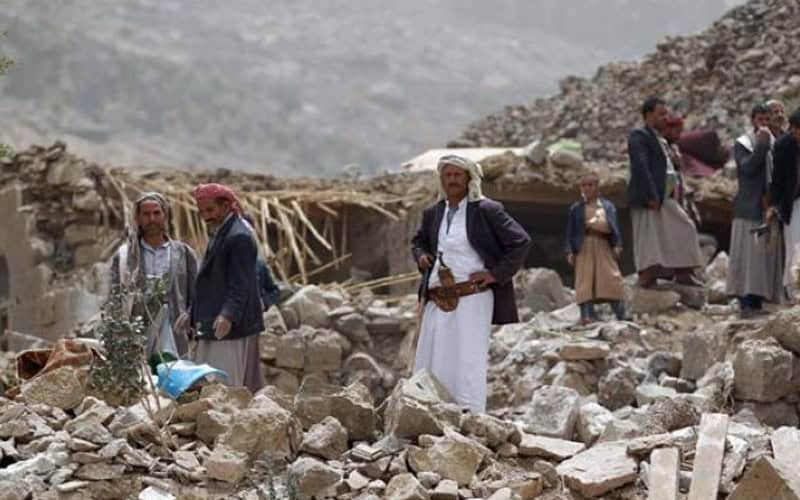RIYADH: Yemen’s President Abedrabbo Mansour Hadi urged Yemenis on Monday to back his government over southern separatists who have taken control of his administration’s de-facto capital of Aden.
Hadi spoke during the first high-level government meeting since fighters from the so-called Security Belt Forces last week ousted loyalists from what was the capital of the formerly independent south, in clashes that left around 40 people dead.
Yemen’s vice president, Ali Mohsen al-Ahmar, Prime Minister Moeen Abdulmalik Saeed, and the ministers of interior and defence took part in the meeting in Riyadh.
Hadi has been based in the Saudi capital since Iran-aligned Huthi rebels ousted his government and took over the capital Sanaa in 2014, sparking a Saudi-led military campaign against the rebels.
Yemenis must “stand behind the legitimate leadership and its official state institutions and reject all destructive projects”, Hadi said, according to the official Saba news agency.
He also ordered his government to “continuously convene to deal with the repercussions of this rebellion”, calling on the separatist Southern Transitional Council (STC) to withdraw from positions they seized.
Government forces and the Emirati-backed Security Belt Forces have both been fighting the Huthi rebels in a years-long war that has pushed the country to the brink of famine.
But the two forces remain at odds, culminating in the STC’s dramatic occupation of key sites in Aden last week before it partially withdrew under pressure from Riyadh and Abu Dhabi.
On Monday, the spokesman for the Saudi-led coalition backing the Yemen government against the rebels said Saudi Arabia and the UAE had “succeeded in calming the situation in Aden”.
“We hope that all Yemeni parties in Aden cooperate,” Turki al-Maliki said during a press conference.
The UAE’s minister of state for foreign affairs, Anwar Gargash, called Monday for “Yemeni dialogue” to reach “the political solution we all seek”.
“The priority now is to address the Huthi coup,” he said on Twitter.
South Yemen was a separate state until it merged with the north in 1990.
Four years later, an armed secession bid ended in occupation by northern forces, giving rise to resentments which persist to this day.
The Saudi-led military coalition sent a delegation to Aden on Thursday to discuss the new front in the crisis.
The UAE is Saudi Arabia’s main partner in the coalition fighting the rebels, but trained and equipped the separatists.
Analysts say the break between Hadi’s internationally recognised government and the separatists reflects a wider rift between Riyadh and Abu Dhabi that threatens to undermine their common battle against the Huthis.

